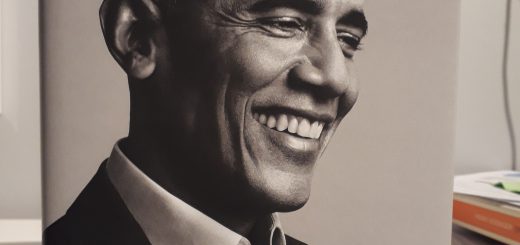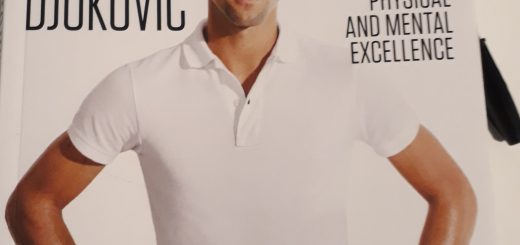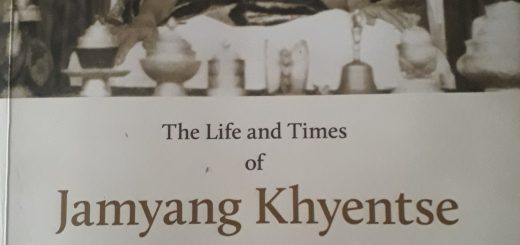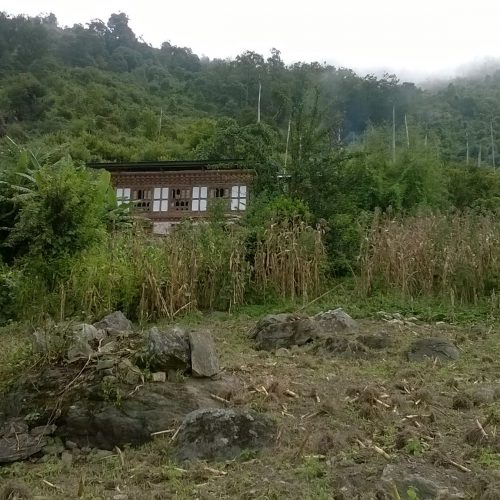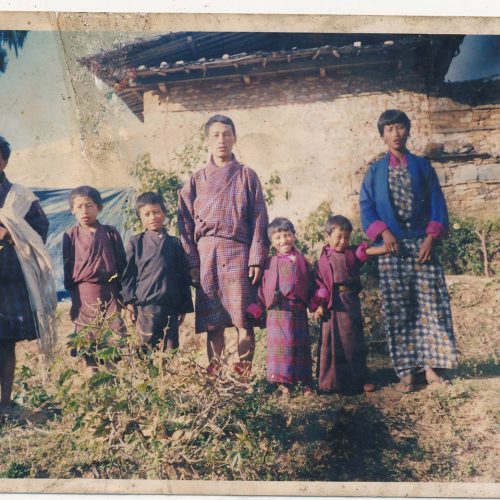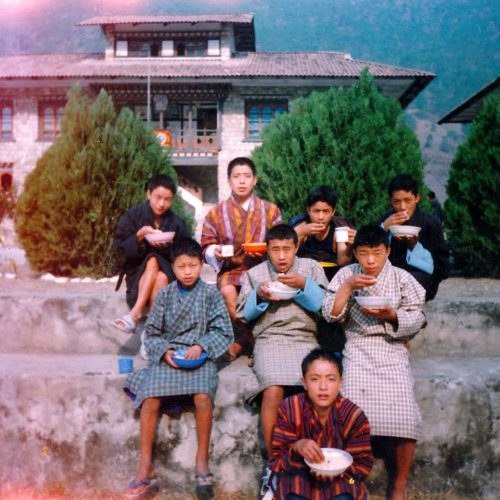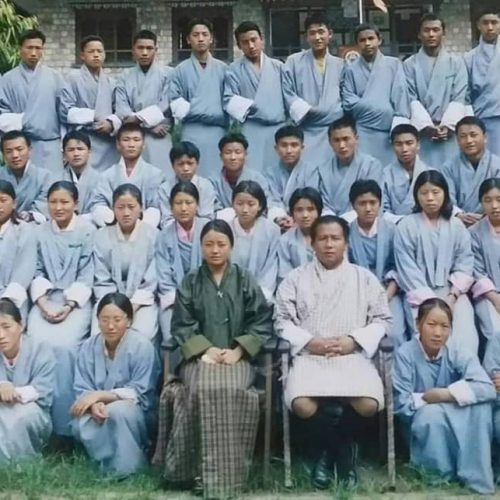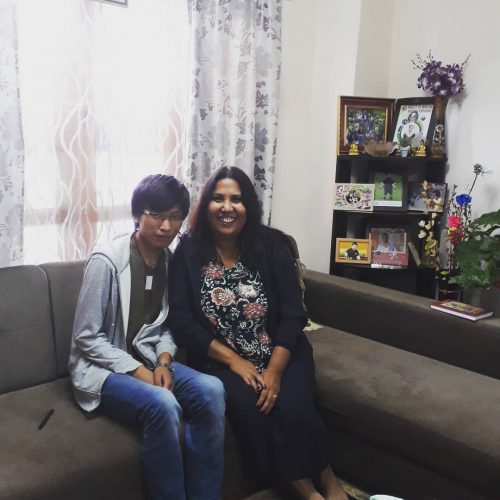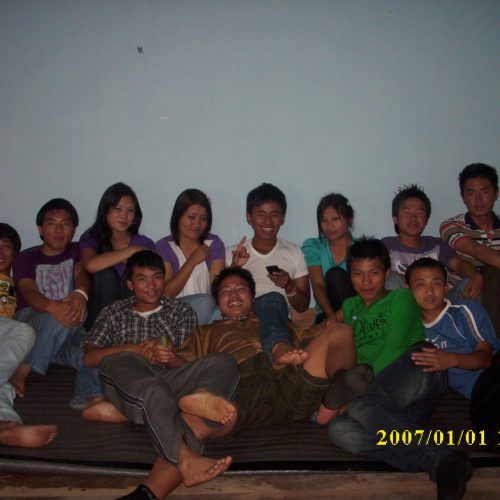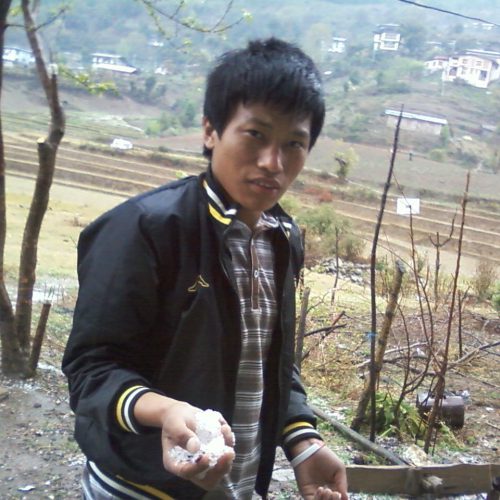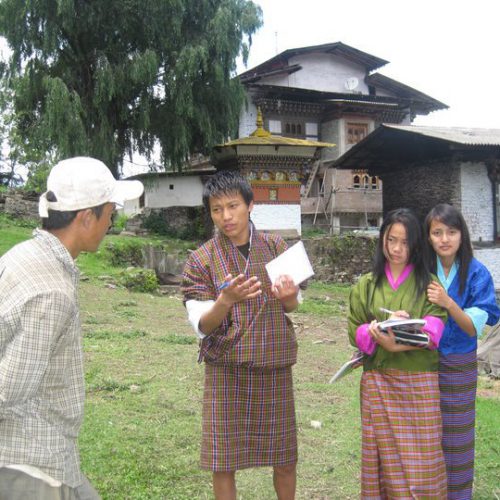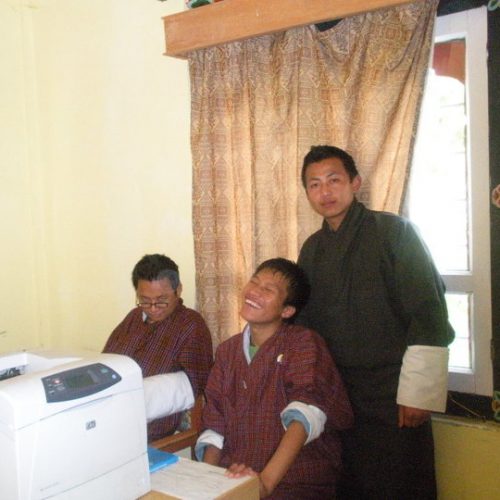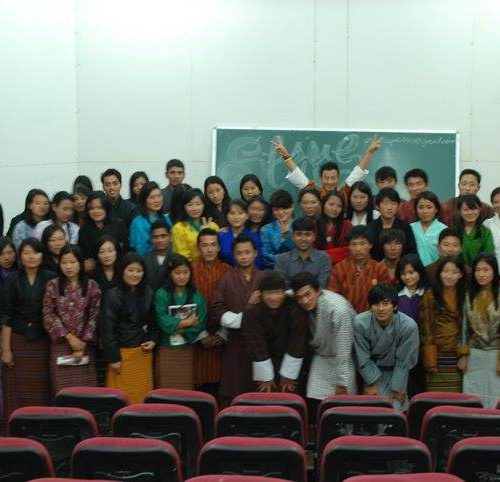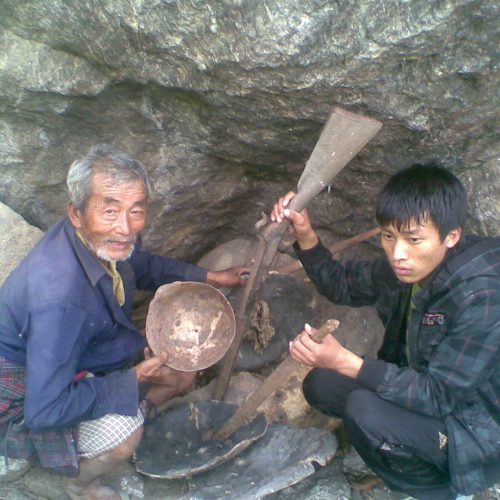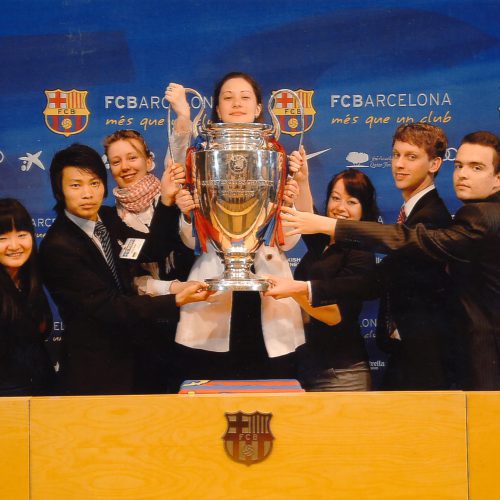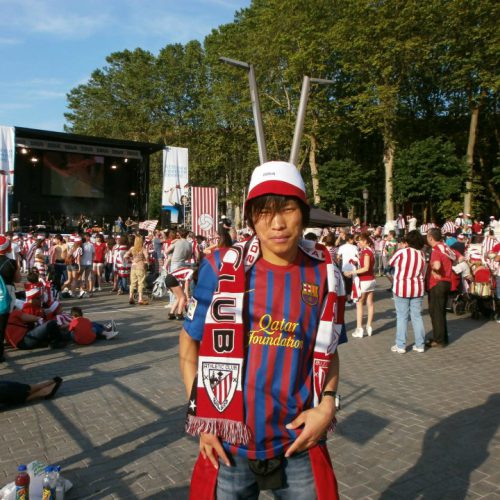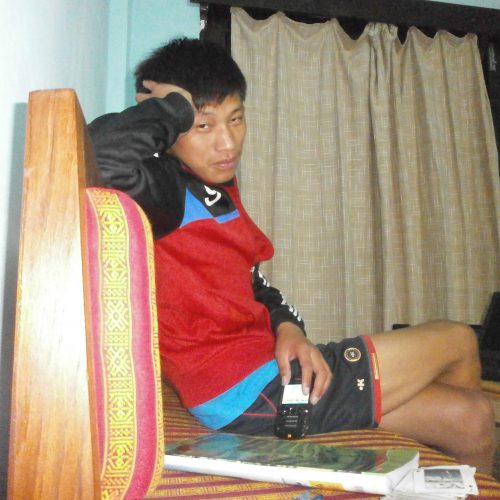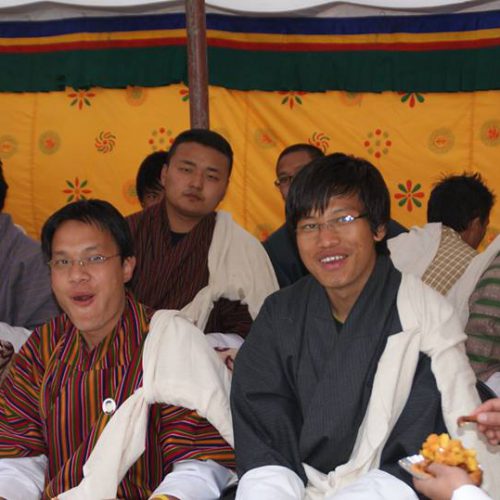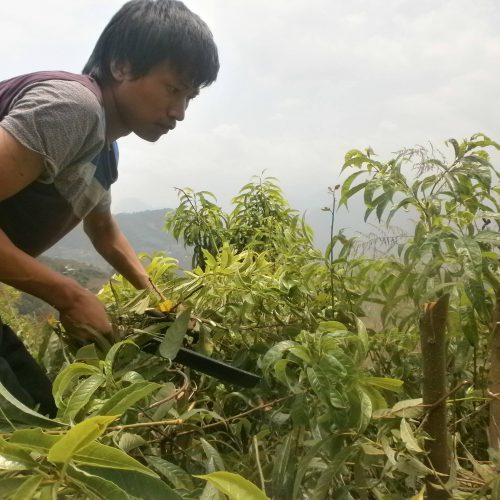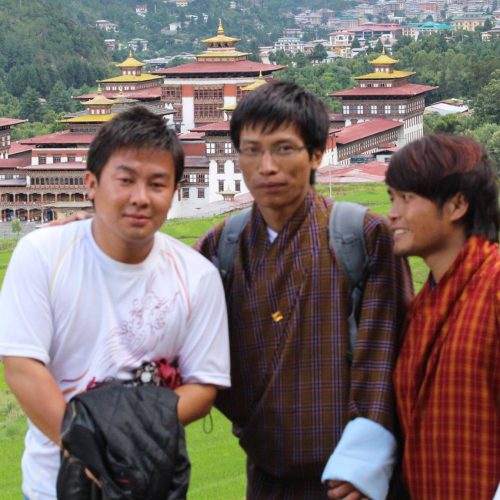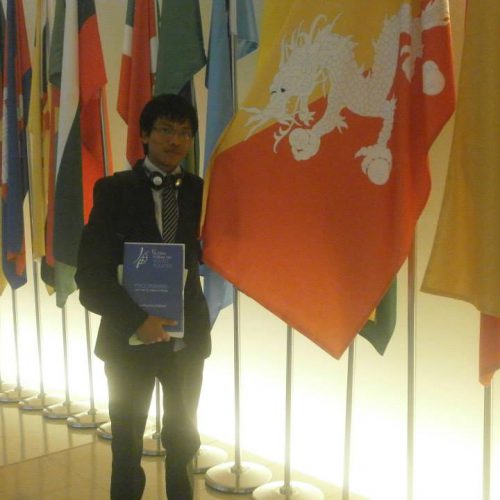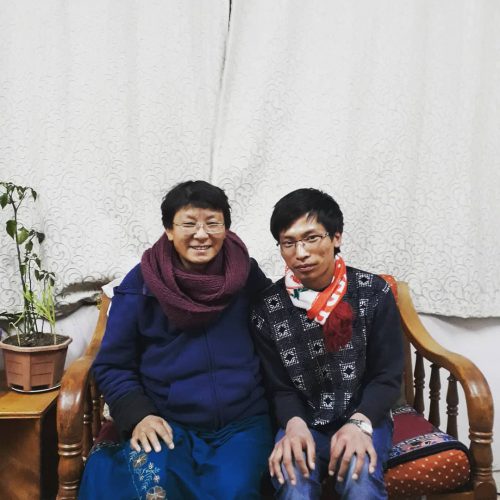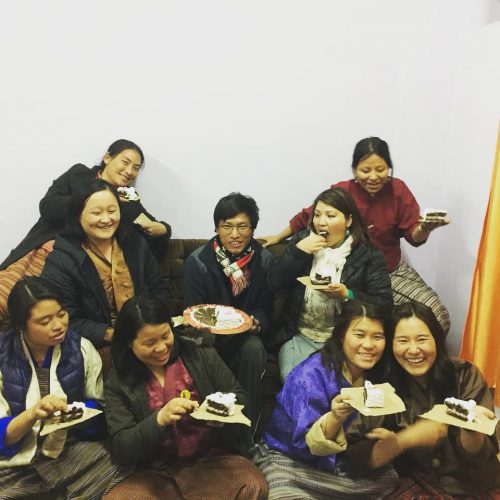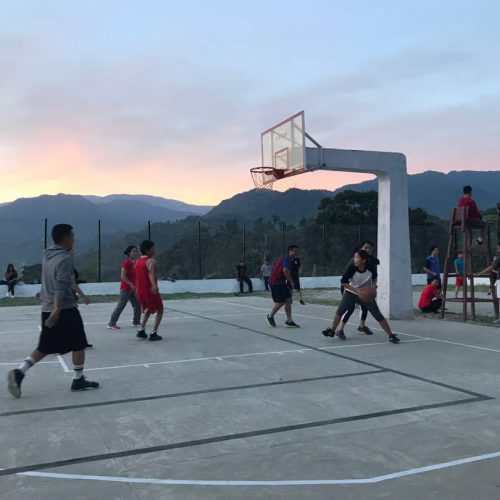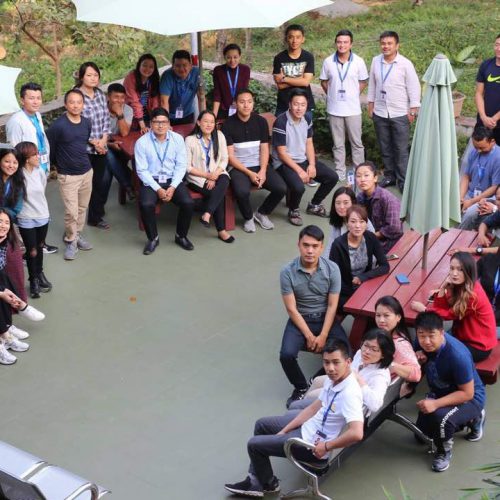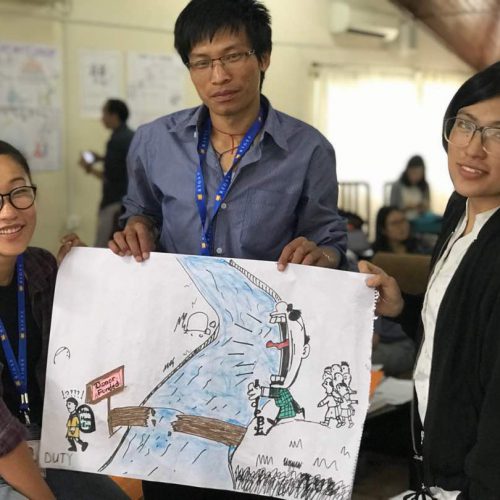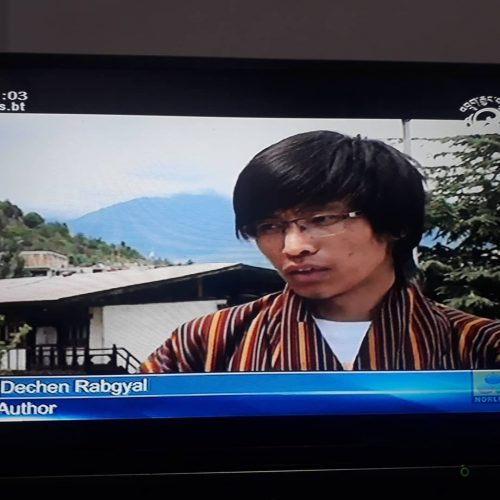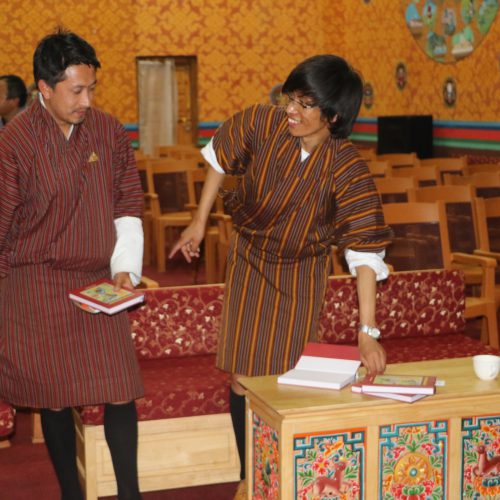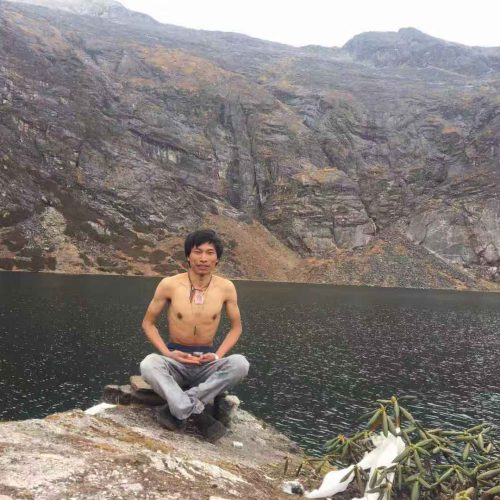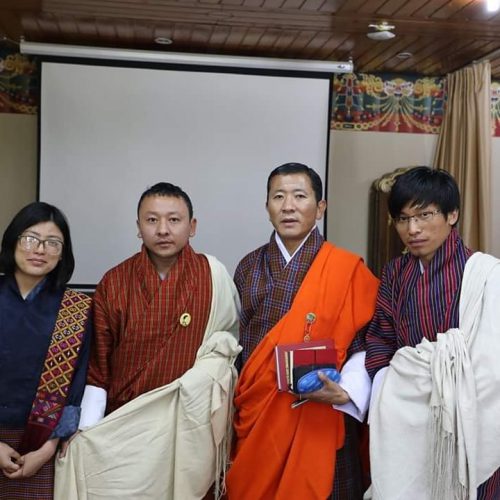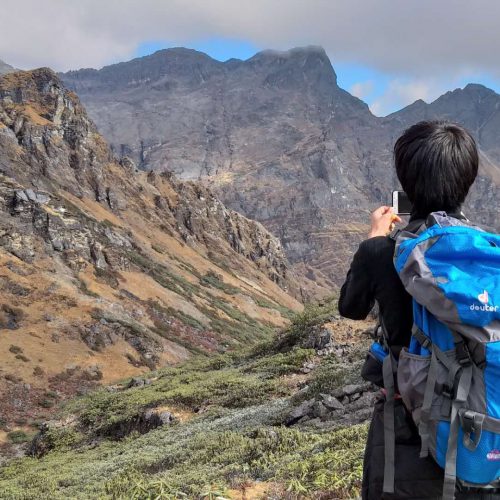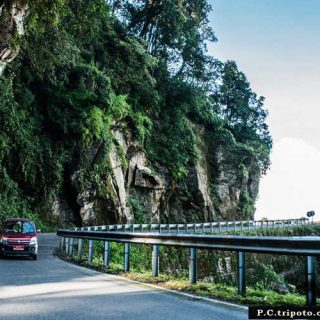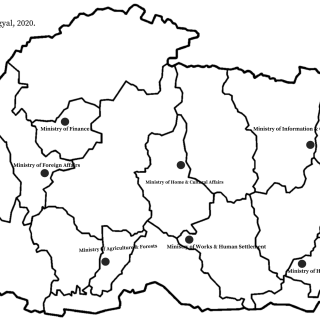Homeward journey but not to home: ‘Bowling Alone’ on the road
As we reached Yusipang, the dusk gave way to dawn. I turned the first page of Robert Putnam’s ‘Bowling Alone: The Collapse and Revival of American Community.’ As it became evident that I will have to travel to Gyalpozhing to be part of a two-week Informational Technology camp for 75 students starting from 21 December 2021, I gave some thought on how I can optimise my time. Given a two-day journey, I felt that it is better to take flight even it meant higher price so that I save time to complete a work for which I have entered a contract. In addition, I am quite thorough with the Northern East-West Highway. But Flight tickets to Yonphula before 20 December was booked. I enquired the availability of a flight on 15 December. Why did I keep it late?
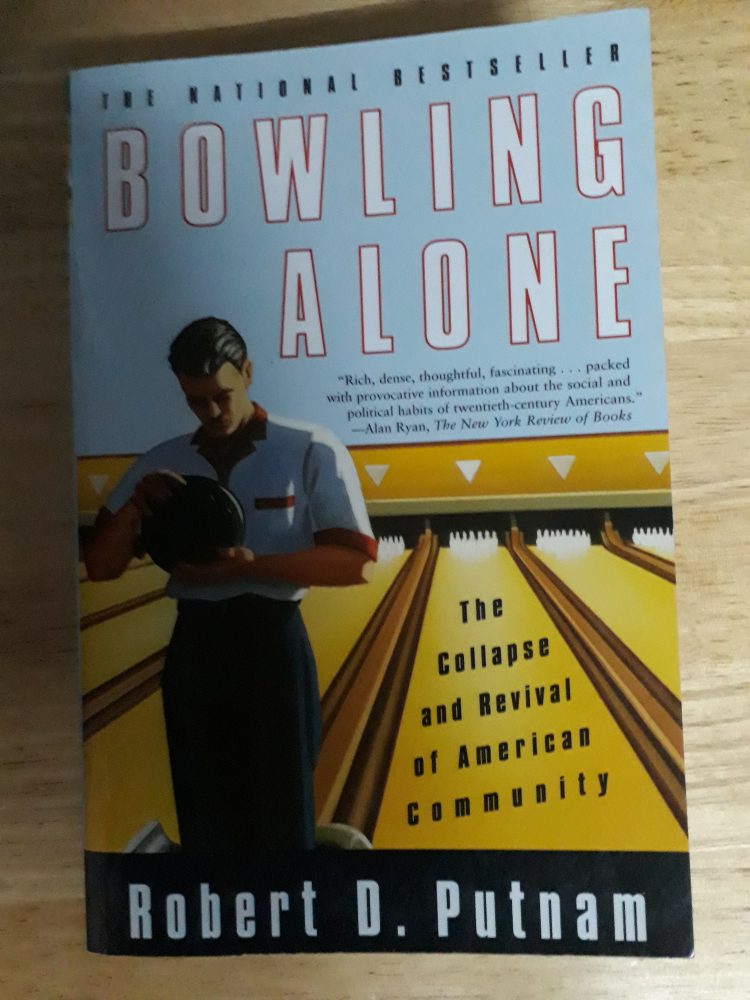
I felt I must make most of what I felt would be a lost time in travelling. I considered the context I am travelling for. I would not get chance to watch the live telecast of the National Day celebrations, particularly, His Majesty the King’s Address to the Nation. In my interactions with people in contact, I got a sense of what His Majesty the King would touch on during the National Day Address. Maybe, we are not doing enough in proportionate to those speeches and statements we make. Is His Majesty ‘bowling alone’? Second, at personal level, I felt ‘why I am doing what I am doing?’ when majority agree ‘in principle’ equitable development as a concern but ‘in practice’, people cannot make it for the event beyond Thimphu because they have professional commitments. In their explanation not being able to join, I could sense challenges in bigger targets such as relocating ministries. Essentially, the goal is same – balanced development and equitable opportunities. In their inability to join for a two-week event, I saw a herculean task to convince political actors with lobbyist and party supporters behind to relocate ministries/major systemic reforms. Perhaps it is time to forge new partnerships and alliances. I asked myself, “Am I biased because I am from Mongar (not Thimphu, Paro or Phuntsholing)?” Would I have taken the same policy stand I take if I were to be born in Thimphu or Paro? Third, headed towards home, but not home, I felt a sense of agency to do something for my community – to bowl. But I have no idea where, when, and how to bowl. At all three levels, I could relate with the title of the book, the book I bought in 2017 from Kuala Lumpur during my month-long training as an ACC official. I booked a single seater ticket – I do not want to appear so serious to the person sitting next to me for the next two days.
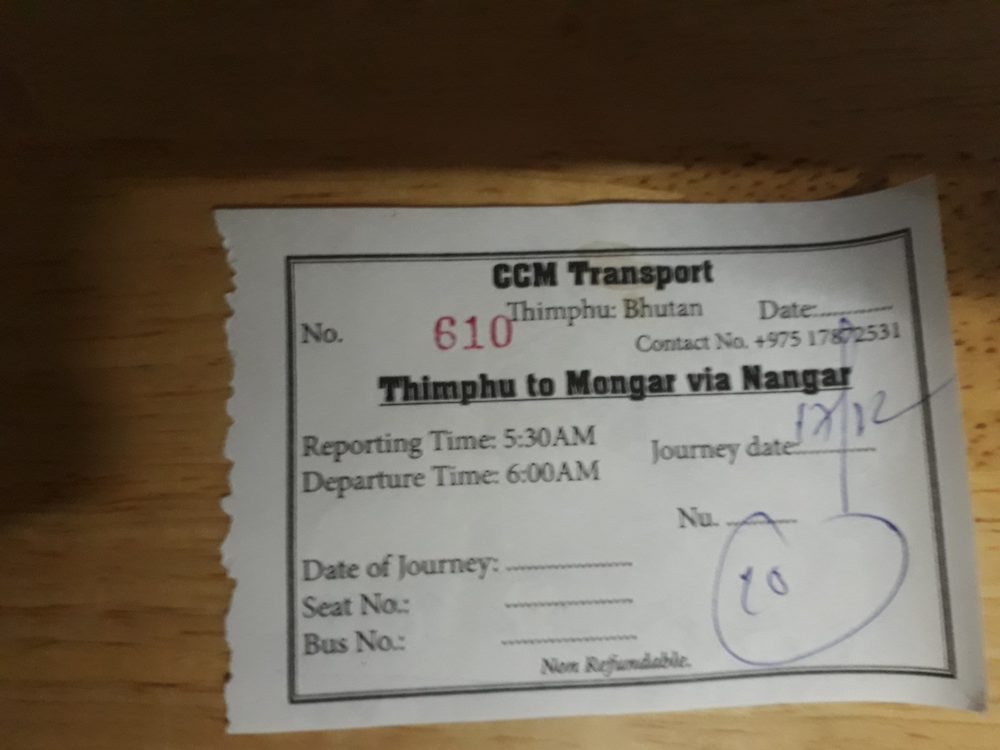
Robert Putnam discusses wide ranging areas of social capital. He also sheds light on physical capital, human capital, and financial capital. In toilets I went and the highway I took, I saw Bhutan’s physical capital. Having started the journey at 06:00 from Thimphu, the bus had to be stopped before it even reached Thinleygang to check its tyres. After crossing Gangteythanka, the tyre had to be changed as we had to wait for some 30 minutes. This is our human capital. I thought, these things could have done before the departure. But I have the book to be read. As I travel to implement a project funded by a German non-profit organisation, it gave me a sense of Bhutan’s financial capital.
As I read through different chapters, I tried to situate it in Bhutan’s social ties and everyday life which I saw real time. At Sha Ngawang, bus driver I was travelling told two other buses, “let’s go together.” They waited. Perhaps they wanted to get a feeling of travelling in a convoy so that it gave them a sense of community and camaraderie. At Nobding, they would share doma (betel and areca) through the buses’ window. Only in Bhutan you may see such an exchange – a reflection of social ties. As we climbed up the Pelela Pass, I received a call from Kezang, a friend of mine, asking if I had breakfast. By then, His Majesty has addressed the Nation. Accountability was one of the central topics. When can we do without having to command or issue a Royal Edict? On my way to engage young minds during their vacation, I tried to imagine their faces and what I can do for them so that we can be more responsible as citizens. I was reading Chapter 3 on Civic Participation.
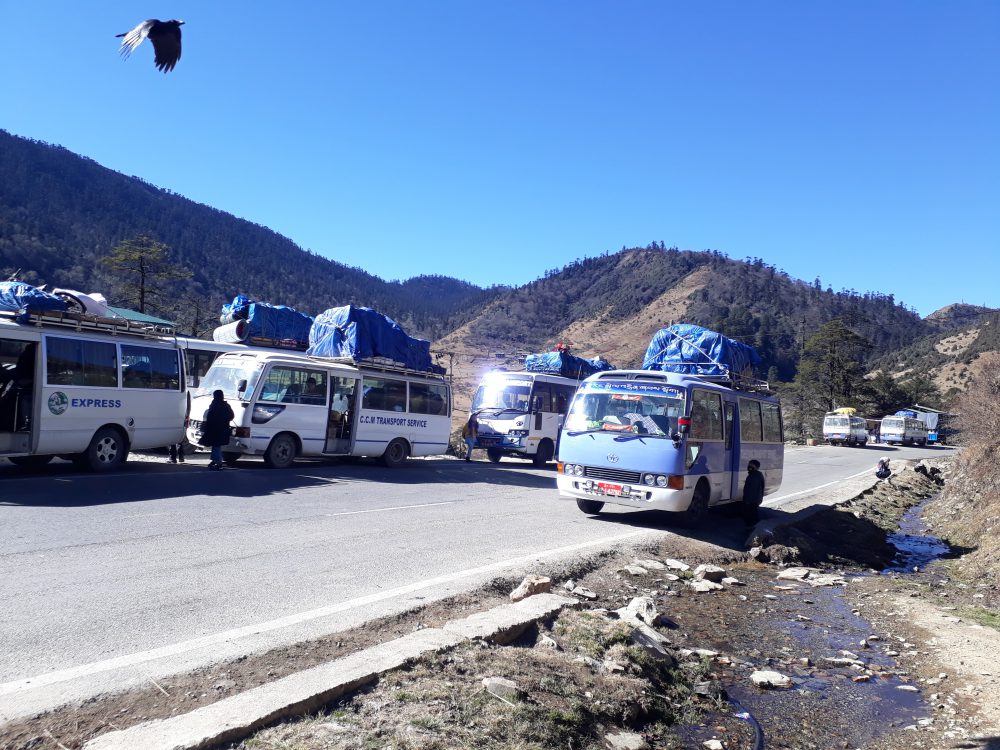
We reached Longtey for lunch around 11:20. Beef and pork were the most preferred choices. This took me back to the different religious aspects I was about to complete in Chapter 4 on ‘Religious Participation’. The live broadcast of the National Day celebration at Tendrelthang was being telecasted as we had our lunch. Women, apparently in late 40’s and another in late 20s asked, where is the place. “Tashi Chodzong” I gave an unsolicited answer to a stranger. Zhana Nga Cham (Black Hat Dance) was being performed. The lady was supposedly asking herself. “Maybe they are rebroadcasting?” I interjected again. “It is National Day today.” I thought, how can we have civic participation without civic knowledge? Can drivers be part of civic education in which they share about the days of national importance to the passengers like the lady I encountered. Can Road Safety and Transport Authority work together with drivers and driving training institutes? That said, some of them were travelling to their home districts to cast their votes for the Local Government Elections.
As I started the Fifth Chapter, “Connections in the Workplace”, I passed by Rukubji Primary School. I know two teachers, Nim Dorji and Jigme Sherab, who are very close friends, if my assessment of their social media interactions is correct. If you do not have closest of friends in your workplace, then the workplace did not create an enabling condition to build social capital, postulates Putnam. As I came across kids playing by the roadside as I passed the Rukubjii valley, I assumed them to be the students of Jigme and Nim.
Going through Chapter 6 on ‘Informal Social Interactions’, I discovered my personality. I am more of machers than schmoozers. We had reached Trongsa, the place which played instrumental role in establishing the Wangchuck Dynasty – the beacon of the Bhutanese Nation state.
On conquering Yutogla, I was about to complete the Seventh Chapter, ‘Altruism, Volunteering and Philanthropy’. There is a massive difference between “work with” and “work for.” You might contribute/work ‘for’ but it cannot be qualified as a social capital simply because it does not forge ties. We will be ‘working with’ the Gyalpozhing College for Information Technology for the benefit of students from economically least advantaged sections. At Chazam, extending my courtesy to Sonam, an official of Gyalpozhing College of Information Technology, for sharing the detailed delegation of responsibilities, I wrote, “Many thanks, Sonam for your detailed information. Only upon seeing them will I be able to identify who is who. Already began to imagine Sir’s and Mesdames faces…” “You will get to meet them on 20th …” was the response. Social ties are in the making.
As the blue pine forests gave way to the open fields of Gyatsa, the sight of Tharpaling welcomes you to Bumthang, the spiritual heartland of the country. By then, I have completed the chapter on volunteerism. The sight of spiritual sites awoke spiritual side of me. Why am I doing what I am doing? Who am I serving? were some of the questions Ana Jigme, who works at the Contentment Foundation asked during our conversations on 16 December in Thimphu. This took me to some of the topics I learnt from Shantideva’s teaching in Bodhicaryavartara. Generosity (dana) is the first of the six perfections (paramitas). As the project gained momentum, some of the alumni expressed reasons why they cannot join the camp at Gyalpozhing. I felt disappointed a bit. But I saw it coming. Under the paramita of patience, Shantideva espouses, “If the universe is filled with thorns, you cannot have the entire universe covered with leather. Wear shoes.” However, distant the resemblance between the situation and the philosophy, I found solace in such a profound teaching. It gave me calmness. You find answer within. In addition, as covered in Chapter 6, ‘Informal Social Connections’, I am in pursuit of association beyond ‘card-carrying/nominal’ alumni’. The IT camp is organised by the alumni of Foundational Leadership Programme-2, Royal Institute for Governance and Strategic Studies.
I freed myself to have a look of the roadside areas as we passed Gyatsa. Chod kyi ming nge gi don hing nang lu dri tsha yi (have written your name in my heart), a song just ended. I felt quite romantic. As we entered Nangar, another song, ka kha ga nga go rim ma cho rung, Chod lu dga wai tsedung key thang shey (Though I do not know the order of Dzongkha alphabet, I know how to express my love and affection to you) was being played. Perhaps I need to learn this song.
As we entered Ura-Nangar bypass, it took me back to January 2014 when I asked a Member of Parliament the implication the Shingkhar-Gorgan highway would have on the business of Sengor. The said highway did not come through. It never will. But I could relate my question with the business of Chamkhar having constructed the Ura-Nangar bypass. “Dechen, some should sacrifice for the national interest,” was the response I was given. Considering that the project I am just about to coordinate is motivated by equitable opportunities otherwise with only one FLP-2 alumni in the east, that to in Trashigang, and having written my take on relocation of ministries as the only option left to ensure balanced regional development, several questions arose in me? Will the elected leaders take bold decision even if it meant losing their political bases if the balanced development is one of the national goals? Will the real estate brokers, property owners and lobbyist in Thimphu sacrifice for the national interests?
At Karma Hotel, I met Dawa, a native folk from Drepung who is on his way to village to cast vote. We discussed about candidates and what they stood for. I let him know my preferred candidates. This took me back to the second chapter, Political Participation. He works at a construction site in Thimphu. This took me to Bhutan’s labour laws, and some of the reservations I have in its implementation. Conversation with him made me reminiscent my Dzongkha Teacher at Sherubtse, Lopon Tenzin’s comment in a class:
“People from all walks of life from the east go to Thimphu and Paro. Those who are rich and financially sound, afford to buy land and build houses. Those who cannot afford to buy land, work in other’s apple orchards.” [look for in my forthcoming book].
I also met a contract teacher, Tashi, who knew me from my brief stint in academia. He expressed his dissatisfaction of the school management of the school he was placed. These are gossips in social spaces that happened after our dinner. That was schmoozers me. In his conversation, I could sense that things aren’t right.
As I prepared to go to bed, I reminisced my visits to sacred sites of Kurje, Tamzhing, Kenchogsum, Jambay Lhakhang, Membar Tsho and Kharchu Dratshang. With Chapter 8, Reciprocity, Honesty and Trust to start the next day’s journey, I recounted my conversations, moments, and times with some of honest and trusted Bumthap friends who I have met during my educational journey and beyond.
“It is cold here. I wouldn’t marry a Bumthap girl however beautiful she might be” quipped man in his late 40s as we started from Nangar at 06:00. Some broke into laugher, few giggled. I thought, with Najab able to cross a desert for Fatima, with modern heating system, cold should be bearable if one ever finds one.
In Chapter 8, ‘Reciprocity, Honesty and Trust’, Putnam discusses ‘generalised reciprocity’ as cornerstone of building social capital. The Meto Transport Service (bus) to that came before us was parked possibly certain oil/fluid must have frozen. Our bus stopped and a huge fire was built. We waited for about 20 minutes. I observed a ‘generalised reciprocity’ among bus drivers at work. At Ura, the morning frost was melting as the bright sun rays kissed the hills overlooking the Lhakhang. I started Chapter 9, ‘Against the Tide, Small Groups, Social Movements, and the Net’. The widening of lateral northern East-West Highway is underway. After crossing Gyezamchu, we met two ambulances with emergency lights. If there was a hospital of similar infrastructure that of Thimphu somewhere in the region, we might not need such referrals. Was I thinking ‘against the tide’? As we touched the base of Thrumsengla, we came across small drain running in middle of the road with ice still intact. A silver colour Lite Ace Van was struggling to cross. A passenger from behind, said, ‘let us go help push the vehicle so that we can go.’ The driver paid no heed. I thought, perhaps the driver did not see Van belong to his (Bus’s) club. After a couple of tries, the car driver let us go. We tried. The bus shook. Some passengers screamed. For a moment, I thought perhaps tourist don’t go much beyond Thrumsengla because of such road infrastructure. The bus had to reverse twice – the second try by some metres. In having to reverse, I thought, to come to Mongar one has go back to Thimphu once. In those drains and ice, I saw structure challenges in pursuit of equitable development. By then I have completed the first two parts of the book, Introduction and Trends in Civic Engagement in Social Capital.
As I crossed Thrumsengla, I greeted myself in my mind, “Welcome home.” With the greeting, I started the third section of the book, “Why?” Chapter 11 on ‘Time and Money sheds light on issues related to resource constraints vis-à-vis engagement in civic life. People who are engaged are generally active in civic life as well. Time and money aren’t really a problem, priorities are. That took me to Sengor.
As we crossed Latongla, it took me back to those childhood days at Drepung when I used to follow the vehicle lights at night passing by the pass. Reading the next Chapter, ‘Mobility and Sprawl’, people who migrate too often does not engage much – they have fewer social ties. In the countryside, where population size is small, social bond and ties are strong. Among millions in cities, you don’t know your neighbours, and you clash the elbows of strangers in the street. What would be status of countryside Drepung and the like if the rural-urban and east-west migration continues at this rate?
Descending towards Yongkola from Namling, I started the last chapter for the day, ‘Technology and Mass Media’. Seeing the title, I could instantly connect with my immediate destination, Gyalpozhing College of Information Technology. The essence of the chapter revolved around how technology promoted egalitarian values not having to take care of ‘extraneous social relations.’ But it did not build social ties – the capital. From Telephone to Television via automobile and radio, technology, if unmoderated, has come about as an impediment to build social capital. For example, television competes for scarce time, inhibits social participation and some programmes inhibit social motivations. We were about to reach Yongkola by then. Our bus’s tyre was about get punctured. It had to be changed. As the driver fixed the tyre, the Lite Ace van had a look and passed without even saying a word. The Bus came. He stopped but the bus I was in told, ‘you can go ahead.’ In those two distinct responses/reactions for the same incident, I saw the group/club instinct at play which I read yesterday on ‘Informal Social Connections’.
The next Chapter, Chapter 14 is on ‘From Generation to Generation. To reach Gyalpozhing, I have only few places to pass by, Thridangbi, Lingmethang and Kurizampa. It is better I do a mind map of how I can better coordinate and organise a two-week IT camp so that I can better link the past generation with the future, as His Majesty the King addressed yesterday, to reclaim, ‘Bhutanese courage/perseverance (sic).’
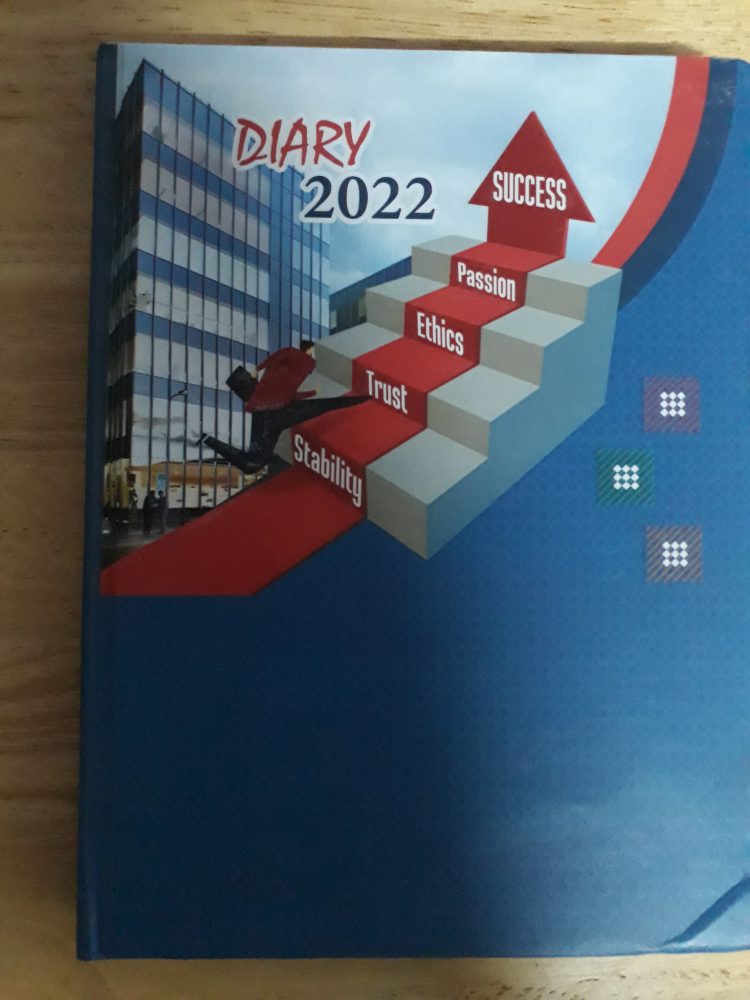
Why I was so engrossed with the reading and into a serious reflection. First, I will have to make up for not being able to listen to His Majesty’s National Day Address live. Second, I was intending to launch my forthcoming book before the end of the year. In having to come here, I had to defer it until January 2022. After having booked the ticket, I bought the diary for next year. In it, I will get to document the aspirations of the future and the realities of the present which should help set my target for the coming year. ‘Don’t sit on the laurels of the past for yesterday becomes redundant today, and tomorrow is unknown. Prepare for the unknown.’

